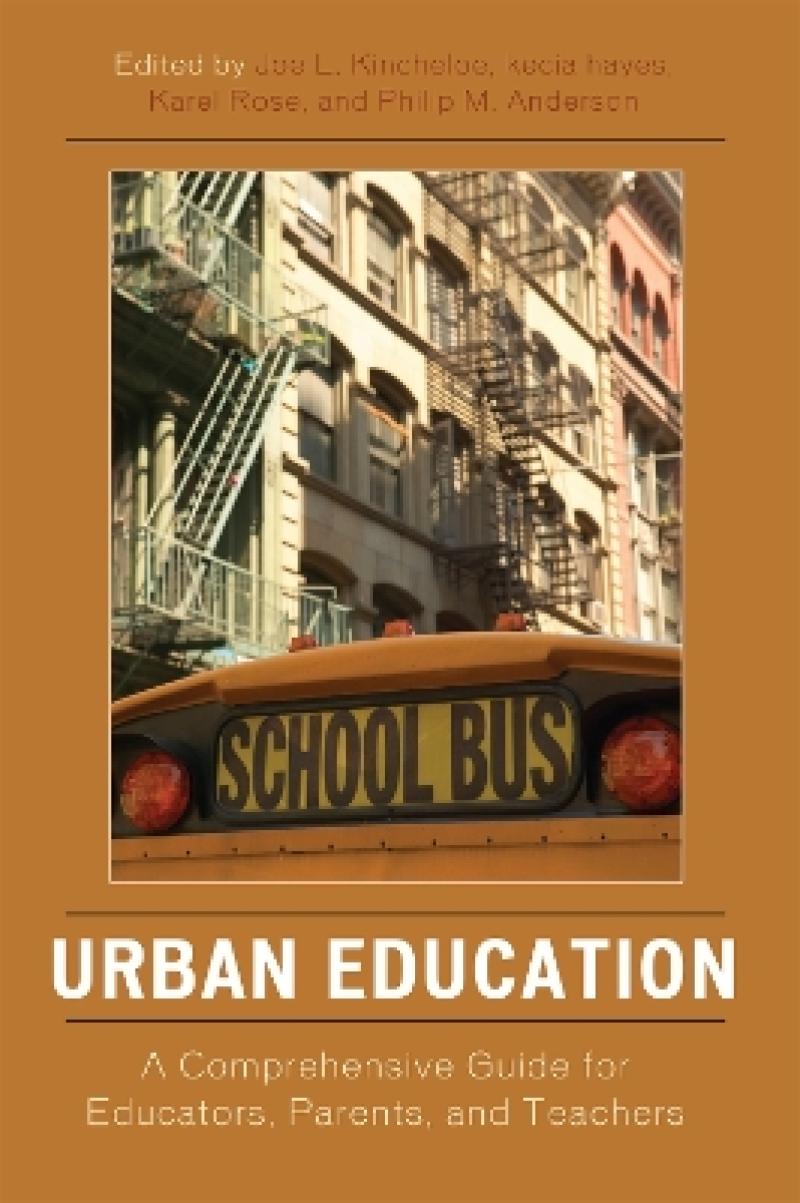Emphasis on urban education is sorely needed, and this series of readings is more than adequate in filling that need and shifting the paradigm of educational theory to current concerns in the urban context. The articles engage readers in examining theory and practice with a grounding in democratic education, often with critical theory or postmodern thought. ...This is essential reading for not only urban educators, but also for educators, as well as administrators and others invested or interested in the current educational terrain of this country. Recommended.
School Library Connection
[This book] reveals the lack of research and abundance of anecdote that marks knowledge production in this field....[t]heir descriptions or a critical urban pedagogy are an important contribution. New teachers in urban schools need to understand the children they will teach. They need also to question their assumptions, and, for many, they need to be willing to acknowledge that they are 'not in Kansas anymore.'
Multicultural Review
Sixty one essays written by specialists in teacher education; public policy; sociology; psychology; applied linguistics; forestry; urban studies; school administration; cultural studies; evaluation; and linguistics provides a blueprint for scholars, teachers, parents, urban politicians, school administrators, policy professionals, and others seeking to understand the situation of the urban schools across America today.
School Library Connection
Written by a mixture of education school faculty, graduate students, and practicing schoolteachers and administrators, this work is aimed at urban teachers and the faculty who teach them; both groups usually come from very different socioeconomic backgrounds than their urban students. Many of the topics range well beyond the traditional boundaries of education, and reflect the major force for socialization that schools have become for today's children. Included are articles on street vendors, parenting styles of low-income African American parents, Saturday remediation programs, globalization's impact on urban education, the media's portrayal of city schools, and the role of cultural and art institutions in the life of a city. The underlying message focuses on the need to improve urban education through fundamental rethinking and reshaping. Recommended.
Choice Reviews
Maintaining that urban teaching and learning is characterized by numerous contradictions, this book proposes that there is a wide range of social, cultural, psychological, and pedagogical knowledge that urban educators must possess in order to engage in effective and transformative practice. It is necessary for teachers in urban schools to be scholar-practitioners, as opposed to bureaucrats who only follow rather than analyze, understand, and create. Ten major sections cover the myriad issues of urban education as it exists today: context of urban education, race and ethnicity, social justice, teaching and pedagogy, power and urban education, language issues, cultural issues of urban schools as seen in the media, research in city schools, aesthetics and the proximity of cultural institutions, and education policy.
Sixty one essays written by specialists in teacher education; public policy; sociology; psychology; applied linguistics; forestry; urban studies; school administration; cultural studies; evaluation; and linguistics, provide a blueprint for scholars, teachers, parents, urban politicians, school administrators, policy professionals, and others seeking to understand the situation of urban schools across America today.
Part 1 The Context of Urban Education
Part 2 Race/Ethnicity and Urban Education
Part 3 Social Justice
Part 4 Teaching and Pedagogy
Part 5 Power and Urban Education
Part 6 Cultural Studies and Urban Education
Part 7 Research and Urban Education
Part 8 Aesthetics and Urban Education
Part 9 Education Policy and Urban Education
